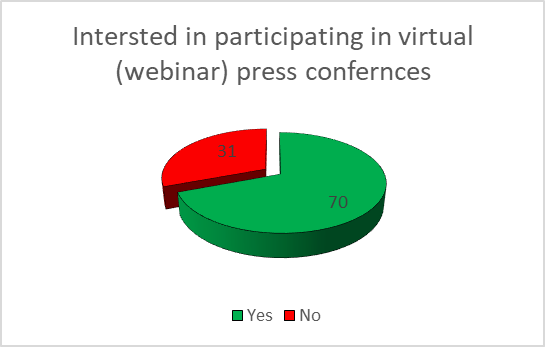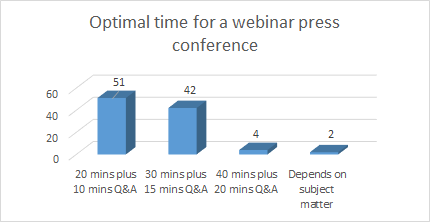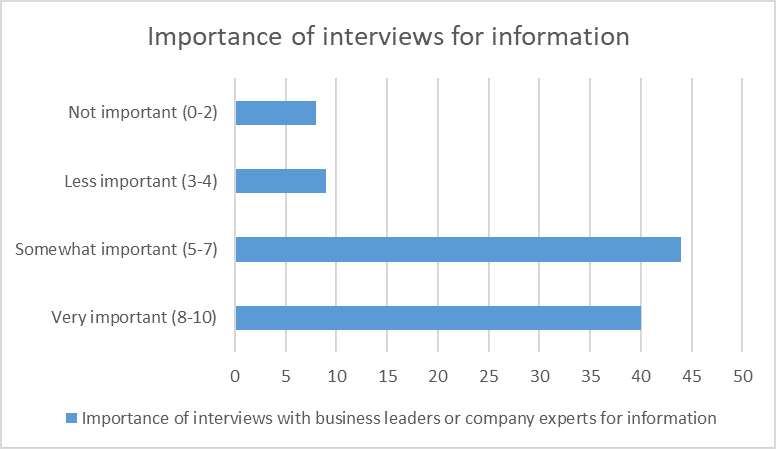Short, sharp and concise webinars valued by journalists as a source of information

It’s no news, that regardless of the impact of the COVID-19 pandemic, webinars were already gaining popularity with journalists as well as companies and organizations. There is also no doubt that the past few months have changed our working habits. While technology advances, this will only continue.
Don’t get us wrong, nor our respondents – press conferences are still a hugely popular means for sourcing news, but webinars are not far behind – and this was before our locked-down ‘Zoom’ culture became part of our new way of life.
Timing is everything!
70% of respondents answered positively that they would be “interested in participating in virtual (webinar) press conferences” versus 97% of all respondents that regularly participate in ‘traditional’ press conferences. Importantly, more than three-quarters of those responses came in by mid-March 2020 – before the various lockdowns started across Europe.

The devil is in the detail
Take note PR practitioners!- Pre-pandemic there is a strong preference by journalists for short, concise webinars as a source of information.
Journalists’ available time for attending webinars is limited. Of those, more than 50% said they would prefer a webinar of 30 minutes in total (20 minutes of presentations and 10 minutes of Q&As), while 42% preferred slightly more time at 45 minutes in total (30 minutes of presentations and 15 minutes of Q&As).

But it’s not just about the medium of communication but also about ‘who’ delivers that message. 84 % of our respondents firmly believe (rated 5 – 10) in the importance of interviews with business leaders and company experts. So if webinars are regarded as a valid medium for receiving news and there is a clear desire to hear from business leaders and experts, the responsibility is on the PR practitioners to use this medium and prepare our spokespeople accordingly.

In conclusion
Importantly, the channel of communication is changing but not the necessity of communication, sharing, learning and questioning. For companies to stay ahead in the crowded information market, they must be prepared to continue engaging journalists with concise information, delivered by experienced and representative spokespersons using the technology we are now increasingly familiar with. Let’s not forget at the end, that our job is to also adapt the approach to media trainings and prepare the spokespersons for this increasingly efficient and popular medium – the webinar.
For more details and results from this survey, request a copy to: contact@NoBorders.eu.com
– – – – – –

